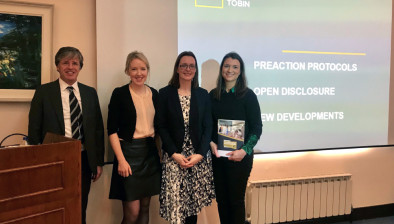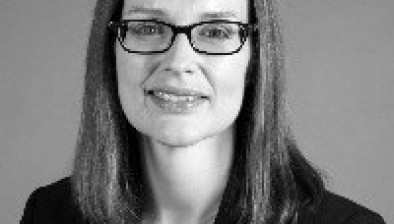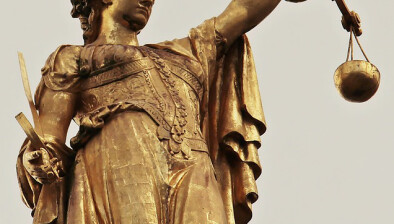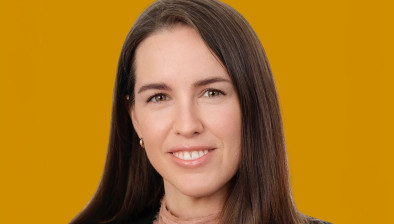High Court: Doctor with drink driving convictions may be named by media reports in disciplinary proceedings

The High Court has ruled that a doctor who was facing suspension from the medical register pending the outcome of disciplinary proceedings may be identified in media reports. The application was made by Mediahuis, who sought to name the doctor who had several serious driving convictions.

About this case:
- Citation:[2022] IEHC 723
- Judgment:
- Court:High Court
- Judge:Mr Justice David Barniville
In an ex tempore judgment, Mr Justice Barniville held that the default position was that such cases would be heard in private under the Medical Practitioners Act 2007 but that the court retained a wide discretion on the issue. In granting the application, the court held that there had already been significant publicity for the doctor based on the criminal convictions in open court and the public register recorded that the doctor had provided undertakings to the High Court.
Background
A full background to the proceedings can be found in Irish Legal News’ previous report on the case.
In summary, the Medical Council had previously sought to suspend the respondent, Dr Syed Waqas Ali Bukhari, from the register pending the outcome of a fitness to practise inquiry pursuant to section 60 of the 2007 Act. The court was not impressed with the respondent’s conduct in the case but determined that it would accept certain undertakings from the respondent in lieu of suspension.
However, the court was only “just about satisfied, and by the finest margin possible” that it should accept the undertakings. It was said that Dr Bukhari was at serious risk of suspension if the matter came before the court again.
This decision was made in July 2022 and was listed for review in October 2022. A journalist from the Sunday Independent attempted to attend the October hearing but was refused entry on the basis that section 60 applications under the 2007 Act were heard “otherwise than in public.” Before that point, no application had been made in two previous hearings for the matter to be heard in public.
Mediahuis issued a motion in November 2022 seeking that the proceedings would be heard in public and that media reports could identify the doctor. It was said that this was a public interest case since the doctor had multiple convictions for road offences whilst working in Ireland. It was also said that the respondent had breached undertakings given to the court.
It was noted that the criminal cases against Dr Bukhari were heard in public and reported in the local and national media. The respondent was reported to have received prison sentences for driving under the influence of drink and drugs and driving without insurance.
In addition, the doctor had provided a comment in a Sunday World article from September 2022 in which he said “I am not working any more. They haven’t suspended me or anything but obviously with investigations going on it is hard to get work.”
The Medical Council was neutral to the application, while the respondent opposed it. Mediahuis relied on the constitutional guarantee of the freedom of the press while the respondent relied on his constitutional right to a good name and his right to earn a livelihood.
The respondent also argued that an application for a section 60 hearing to be in public must be made at the outset of the proceedings and not after judgment had been delivered. Further, it was said that he had committed certain information on affidavit for the July hearing on the basis that it would be private.
High Court
Delivering judgment in the case, Mr Justice Barniville held that was appropriate to hear the remainder of the section 60 application in public and permit Mediahuis to identify the respondent. The court held that the default position under section 60 was that such applications were heard in private but it was said that the court retained a wide discretion on the matter.
It was accepted that the rationale for private hearings derived from the serious professional damage that could occur to a doctor when disciplinary proceedings involving allegations of misconduct were still at an early stage. The court also noted that the principles outlined in Gilchrist v. Sunday Newspapers Limited [2017] 2 I.R. 284 regarding hearings in public were important. However, these principles were not directly applicable because Gilchrist dealt with an application for a public hearing to be hearing in private.
It was noted that the court did not have to adopt a binary position on the public/private hearing issue. In previous cases, the High Court had heard applications in private but named the doctor in the judgment (see Medical Council cases against Dr Patricia Selvarini Black and Dr Syed Harris Zubair).
In respect of the respondent’s good name and reputation, the court noted that criminal convictions arising from guilty pleas were bound to negatively affect these constitutional guarantees and the respondent could not separate his reputation as a doctor from his reputation as a private citizen.
There had been a “considerable amount of publicity” in the media regarding the doctor’s convictions in open court. Further, the doctor had accepted undertakings that the medical register would record his voluntary undertakings given to the High Court. As such, the public were already aware of the respondent’s conduct, with the articles containing a lot of information about the driving offences (Irish Press plc v. Ingersoll Irish Publications Limited [1993] ILRM 747 considered).
The court also noted the doctor’s comment that “they haven’t suspended me or anything”, stating that this was misleading in a context where he only avoided suspension due to additional undertakings being provided. It was open to a court to vary the privacy of a hearing based on the particular circumstances of a case, the court said (see Medical Council v. Watters [2021] IEHC 252).
Mr Justice Barniville agreed that an application to dislodge the default position should usually be made at the start of a hearing but this was not always possible as the media will not usually know about the application. Further, the court did not accept that it had heard the Council’s application to conclusion, as the matter had been adjourned and was still ongoing.
The court retained a wide discretion on circumstances where it was appropriate to direct a public hearing, the court said. It was not a breach of fair procedures to determine the issue of publicity after a judgment had been delivered.
Conclusion
The court granted permission for further hearings to be in public and that the media may identify the respondent in reports. It would be necessary for the court to revisit its July judgment to name Dr Bukhari.
Medical Council v. Bukhari [2022] IEHC 723











